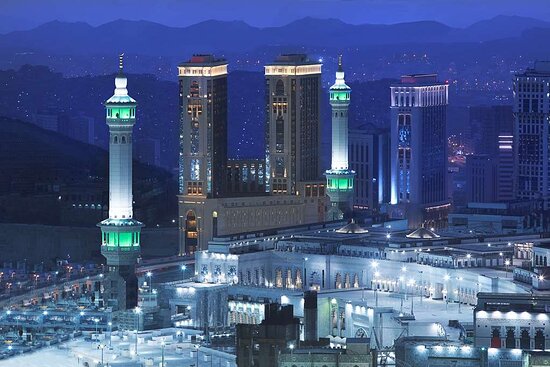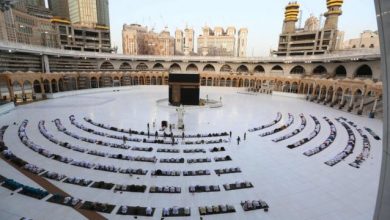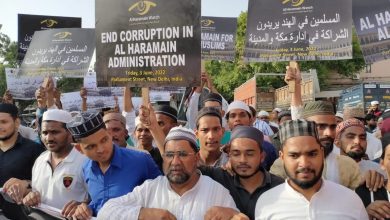Saudi Arabia makes too much business out of Umrah and Hajj

The International Commission for Monitoring the Saudi Administration of the Two Holy Mosques said that the Saudi authorities are only interested in converting the rituals of Umrah for commercial purposes and increasing financial returns.
In a press release, the authority deplored the arrival of accommodation offers in hotels near Mecca to more than 74,000 riyals per night and the provision of panoramic views of the Kaaba under the pretext of enjoying the distinctive faith atmosphere.
The authority emphasized that the Saudi policy empties the content of the rituals of Umrah from its spiritual and faith-based essence and turns it into a mere commercial commodity targeting the rich at the expense of the poor Muslims.
The authority monitored a media campaign for the Saudi regime to promote its spending on projects to prepare the holy sites to receive pilgrims and pilgrims.
The international body said that the Saudi media campaign deliberately ignores the huge financial returns that flow into the Kingdom’s treasury from the rituals of Hajj and Umrah, in light of Riyadh’s uniqueness in managing the Two Holy Mosques.
The official Saudi newspaper, Al-Riyadh, published a report dealing with “the Saudi government spending billions of riyals since its establishment to prepare the holy sites to receive pilgrims, pilgrims and visitors.”
The newspaper claimed that “even in light of the economic crises, spending on the Two Holy Mosques was prioritised. The Saudi leadership was keen to speed up and shorten the time period for implementing projects, which raises the construction cost to about three times its actual cost.”
The newspaper pointed out that the Kingdom’s Vision 2030 aims to raise the number of pilgrims and Umrah pilgrims to 30 million per year, which will raise economic income through the incomes obtained by the sectors operating in Hajj and Umrah.
It is expected that the number of Hajj and Umrah pilgrims will reach pre-Coronavirus levels this year, “and this will undoubtedly result in a great economic movement that will benefit the sectors related to Hajj and Umrah, and consequently, these sectors will offer more job opportunities to citizens,” according to the newspaper.
For decades, the Saudi regime has been collecting billions of dollars in its treasury every year from the great Hajj season for Muslims, using the bulk of them to fight Muslims and kill them, whether in Yemen or other countries.
Internally, with these annual returns, the Saudi regime enshrines its rule based on repression and oppression of the Kingdom, including chasing any source of awakening and enlightenment to extinguish them.
What Hajj and Umrah pilgrims spend each year is equivalent, according to some estimates, to the oil that enters the treasury of the country of the Two Holy Mosques, if not more than it.
This worship is like a gold mine for the rulers of those countries, and the opinion that these revenues are in the private sector’s interest, not in the state treasury, and do not represent more than 4% of the domestic product, is not taken into account here. Including excise duties, taxes, etc., directly and indirectly.
For years, calls have been mounting in Islamic countries to boycott Hajj and Umrah in light of the politicization of the administration of the Two Holy Mosques by the Al Saud regime and in light of the policies of this regime based on oppression internally and externally, and one of the sources of strengthening its strength for this season of Hajj and Umrah.


